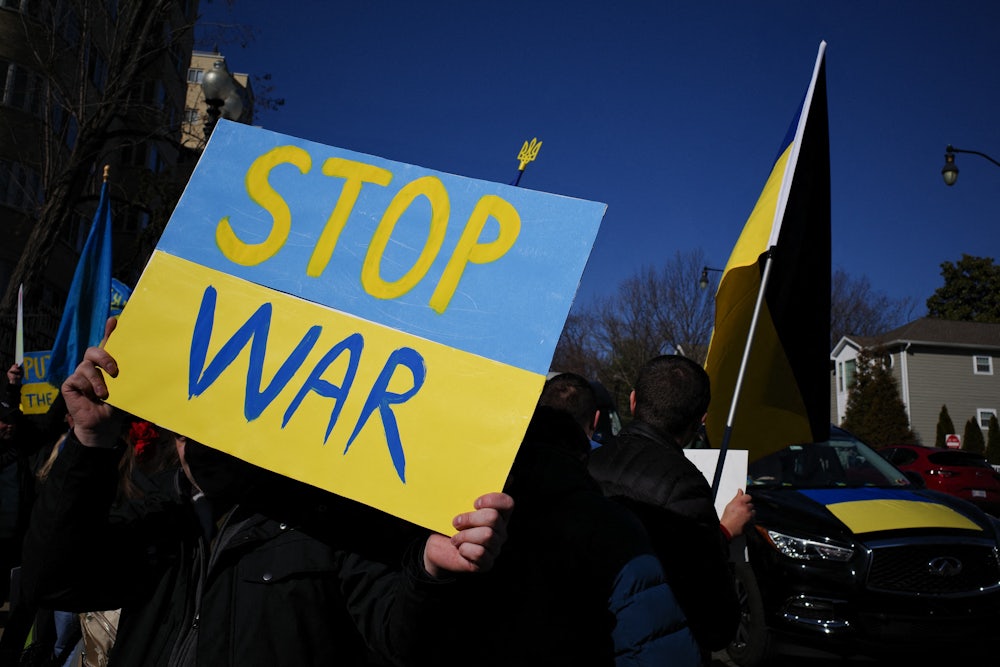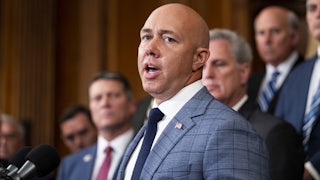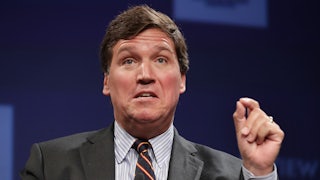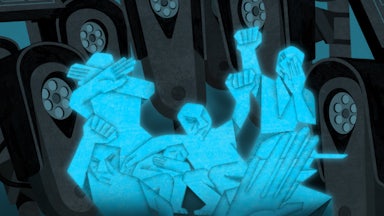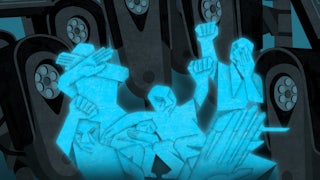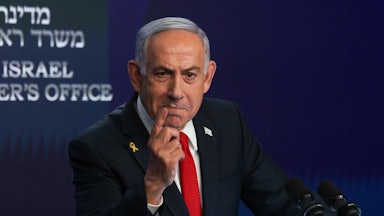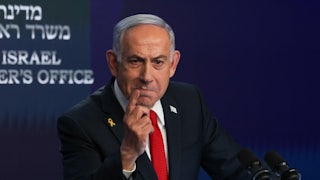The merciless Russian invasion of Ukraine—with the shelling of maternity hospitals and the indiscriminate slaughter of civilians—has created about as clear-cut a struggle between good (Volodymyr Zelenskiy) and evil (Vladimir Putin) as you can find outside of fire-and-brimstone Christianity.
Most of the analysis of U.S. polling on the war has focused on two overly narrow questions: Will Joe Biden get a rally-round-the-flag bounce in his approval ratings? And will the American people politically accept higher gasoline prices as a cost of economic sanctions against Russia?
Looking at everything through the prism of the 2022 elections confuses more than it clarifies. Many factors beyond Ukraine (the pandemic, the economy, inflation, relations with Congress) will shape Biden’s approval ratings. And asking voters to predict how they might react months in advance to higher prices at the pump is almost guaranteed to produce misleading answers.
Instead, most poll analysts are missing something larger and more lasting. The message embedded in surveys of American reactions to the war in Ukraine is that we, as a nation, are moving into a post–Donald Trump world, one where the country might again be ready to embrace the broader ideals of democracy—at least abroad, when those principles are detached from domestic partisan strife.
There is strong evidence of a bipartisan revival of the age-old dedication to liberty. Nothing that Trump attempted with his lovesick swooning over Putin, his contempt for our NATO allies, and his disdain for the basic tenets of democracy has stuck. The reaction of the American people to an entirely new issue—Russian tanks pouring over the border into Ukraine—is virtually the same as if Trump had never been elected president.
Even though Kyiv is more than 5,000 miles from Washington and no American troops are in jeopardy, 89 percent of registered voters surveyed by The Wall Street Journal say they are following the war “closely” and 54 percent are watching “very closely.” This is not normal, especially after the nation was exposed to four years of Trump-style America First isolationism. Even pro football is not followed as closely. According to a poll by the Los Angeles Times and SurveyMonkey before the Super Bowl, only 51 percent of Americans claim to be football fans.
The scorn for Putin is near universal. In a recent ABC News/Ipsos poll, 80 percent of Americans contend that Putin holds a “great deal” of blame for the war with Ukraine. This number holds steady despite Trump’s pre-invasion gushing over Putin’s “genius” and his “very savvy” strategy. The number holds despite Tucker Carlson’s zealous efforts on prime-time Fox News to spread a pro-Russian conspiracy theory about bioweapons in Ukraine.
What also leaps out from the polling is that Americans believe in NATO and the obligation to come to the defense of our allies militarily if attacked by Russia. Asked precisely that question in a recent CBS poll, 73 percent favored a “U.S. military response against Russia.” All the bloviating by Trump that Americans are being played for suckers by our European allies failed to register. Americans believe that allies matter, especially now that Putin has displayed his full aggressive intention to restore the old Soviet Union.
Even more startling is the lack of significant differences between Democrats and Republicans on many of these questions. A study—released Tuesday by the Pew Research Center based on its online survey panel—found that “working closely with U.S. allies … to respond to Russia’s invasion” won bipartisan support from 73 percent of Republicans and 85 percent of Democrats. Remember that we are supposedly in an era when political partisans on both sides can’t even agree on the orbit of the moon or what month comes after March. Yet the blue and yellow flag of Ukraine has brought both sides together in support of the democratic values that American proudly bequeathed to the world in 1776.
Maybe, for the moment, politics does miraculously stop at the edge of the embattled borders of Ukraine. Of course, when it comes to domestic issues, the venom and the vitriol endure. In some polls, just 20 percent of Republicans believe that Biden was legitimately elected. The same divisions apply to the legacy of the January 6, 2021, assault on the U.S. Capitol. Most Republicans see the insurrectionists as little more than free-range tourists. According to a January poll from YouGov/Economist, 59 percent of Republicans believe that antifa (that near-mythical left-wing organization) was somehow involved in the attacks.
Make no mistake, the deep cleavages over American politics have not vanished with the justified bipartisan embrace of Zelenskiy as a martyr of democracy. But it does suggest that when confronted with a new crisis—and a new set of issues—Americans push the reset button and express their underlying beliefs about freedom, alliances, and the rights of smaller nations to forge their own destiny.
It is unfortunate that it has taken a global tragedy in Ukraine to show Americans that we are not a selfish people motivated only by a Trumpian what’s-in-it-for-me ethos. The agony in Kyiv is a reminder of the built-in fragility of every free society. How can we be so cavalier about our own free elections when the Ukrainian people are fighting and dying to preserve their own fledgling democracy?
